Sydney Gay and Lesbian Mardi Gras: 78ers celebrate progress and struggle
The 78ers who marched in Sydney’s first Gay and Lesbian Mardi Gras have a powerful message for the young LGBTQIA+ Australians marching today.
Sydney Weekend
Don't miss out on the headlines from Sydney Weekend. Followed categories will be added to My News.
Gay wasn’t even a word when Peter McEwan was outed in the 1970s.
Today, at the age of 71, McEwan is a proud 78er. One of the 103 Australian men and women from all sectors of the LGBTQIA+ community who walked with purpose through the streets of Sydney 44 years ago, protesting for gay and human rights in what was to become the first Sydney Gay and Lesbian Mardi Gras Parade.
Their peaceful statement was met with brutal bashings and arrests, before being splashed across the Sydney Morning Herald. But that wasn’t the start of McEwan’s journey.
“My story started when I was arrested by the police when I was 17 years old and still at school,” he says.
“I was arrested at a beach in Melbourne and I was just playing around with some guy in the bushes at this beach – not having sex – but the police had this entrapment exercise going on and jumped out and I was arrested because everything was totally illegal back then.
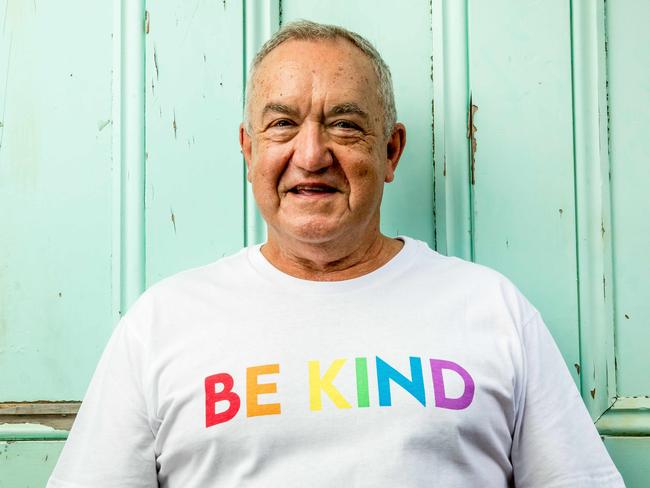
“I didn’t know what I was doing really but I got taken up to the police station and my father had to bail me out and I had two court cases and a psychiatric assessment.
“My name was put on the front page of a newspaper at the time. I was so utterly humiliated.
“I was a student at a Catholic boys school and I just went totally into a shell. I couldn’t speak to a single person about how I was feeling.
“We didn’t even have words. The word gay didn’t exist then, there was nothing. I used to go to the library when I was a little kid and look up P for perversion, D for deviants, I for Inversion, and medical books, just to read something about myself. And there was nothing.”
That’s why the Pride movement remains so important, more than four decades after that first Sydney march.
“When you grow up knowing you’re different, and often you don’t know what the difference is, you just know you have something to hide, that bleeds and sows the seeds of shame,” McEwan says.
“And people live their lives in shame until they can say ‘This is who I am’ and that’s why the Pride March is so important and why Mardi Gras is so important.
“Once in their life, people need to walk in the street and say, ‘Look world, this is me, and I’m proud’.”
The gay liberation movement
Leading up to that pride moment was the hardest of times for McEwan and it took all of his power to survive it. But the 1970s were a decade of great change, as the civil rights, Black and anti-war movements gained momentum.
“But most importantly for me, the gay liberation movement,” McEwan says.
“I was at university at the time and I met my partner at the very second meeting of gay liberation in Melbourne, and our relationship went for 18 years until he died of AIDS.”
Gay liberation saved McEwan. It gave him a community, a support he didn’t find anywhere else and it gave him the freedom, and confidence, to be himself.
“Gay liberation was a huge thing for me because it basically was saying that gay is good, but (elsewhere) we were told we were evil, sinful, sick, illegal and all the rest,” he says.
“And we take that on board, we have no defences.”
Those impassioned by the cause came together and the first thing they had to do was realise that they were good people and to be proud.
“Just as women at the time were saying ‘Women are strong’ and the slogan was ‘Black is beautiful’ – ‘Gay is good’ was a slogan for the times because we had to believe that we were good people,” he says.
“That activism was strong in Adelaide and Melbourne and Sydney and this was long before we had telephones even in our homes, let alone internet or faxes or anything, but somehow or other we had a national movement.
“We were staying at each others’ houses and visiting interstate, so it was quite a strong connection.
“It was a different era but we had national conferences and would go by train to Sydney and they were fantastic.”
Rise of the 78ers
That first big day for gay liberation in Sydney came on June 24, 1978, as several hundred gay and lesbian marchers and their supporters gathered in Taylor Square before taking to Oxford St as part of a series of events to mark the anniversary of Stonewall Day and raise local issues, such as the decriminalisation of homosexuality.
Stonewall Day stemmed from a 1969 uprising in the US when gay people, particularly transgender and drag queens, stood up to the police who were raiding a gay bar in New York called the Stonewall Inn.
“It was the night of Judy Garland’s funeral, and they were very emotional and they said ‘we’ve had enough’ and that was the first time really, in my life, that gay people had stood up and said, ‘no, we’re fighting back’,” McEwan recalls.
“And that became a symbol for us, and that’s why we had marches in the streets in Melbourne and Sydney on June 24, which became known as the first Mardi Gras.”
McEwan will never forget that day.
“The police just blocked off the streets and they charged us, wielding batons and (making arrests). (Marchers’) names, occupations and addresses were plastered on the front page of the Sydney Morning Herald, which meant people lost their jobs,” McEwan says.
“It was just awful.”
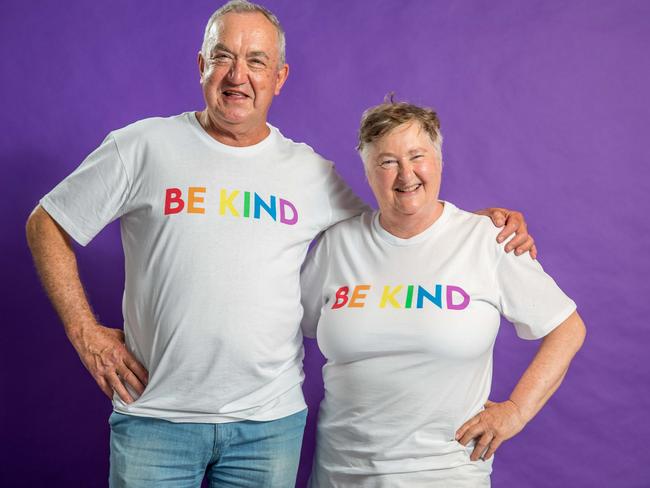
Change for future generations
The movement and its people have come a long way since 1978.
McEwan, along with other 78ers, including Victorian Jude Munro, have spent their lives trying to pave the way for future generations to not feel so “different”.
To be accepted, and celebrated.
Munro went on to be chief executive of the City of Brisbane, and later was asked by the Victorian state government to build and chair the board of the Victorian Pride Centre, a board McEwan also graced. They spent five years building the community centre, the doors of which opened last year.
“I was involved in various community groups but in particular, when the AIDS epidemic came and I lost most of my friends from that period, including my partner, and that devastated the community,” he says.
“But Mardi Gras always continued, and it moved to better weather in February, and it’s continued ever since.
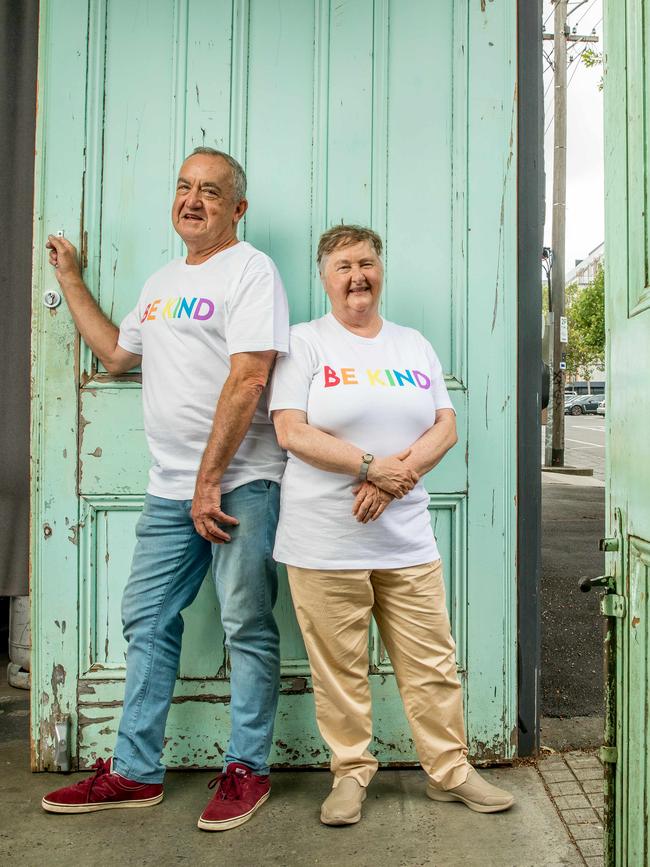
“(On February 6) the Victorian Midsumma Pride march marched past the Pride Centre for the first time, which was quite a journey.”
While the youth of today face their own challenges, McEwan says the 78ers just “did what they had to do”. It wasn’t easier, it wasn’t harder – it was just different.
“I personally don’t feel like I’m owed anything by the ones who come after because they have their own challenges, and I encourage people to rise to whatever challenge they face now,” he says.
“(For those) feeling you are not acceptable, or you are not OK, I just give the message that you are OK.
“Create community. That’s what we did and that’s what kept us going. We needed that because back then, people were rejected by their families and thrown out (of their homes).
“It became really bad during the AIDS era when you might find a couple who had been together for 30 years, and the partner dies and the next day the family comes in and throws the partner out, and they have no rights, they don’t get invited to the funeral.
“They weren’t allowed to be in the hospital when their own partner died, because we had no rights.
“That’s why marriage equality was so important.
“I’m not bitter and I’m not complaining, I’m just saying it was a different world, and the challenges now are just as strong for young people, for their mental health, and they need to work together in solidarity and community and face the challenges, whatever they may be.
“So it’s important to remember the past, but not be stuck in it.”
New Pride campaign
Australian fashion brand Kind Is Cool has launched a new Pride campaign honouring 78ers like Peter McEwan and Jude Munro.
The brand was founded by Amber Wilkinson after she experiences bullying in the workplace.
It has raised tens of thousands of dollars for various charities over the years, and started a National Be Kind Day which is held each year on March 2.
“We are a global clothing brand with a conscience,” Wilkinson says.
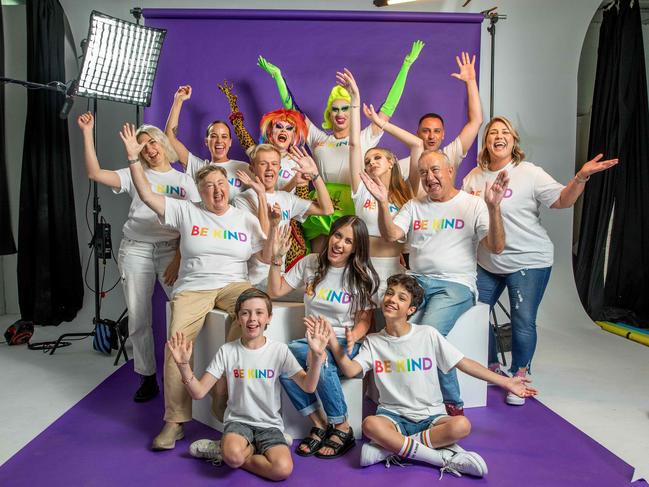
“We are fully aware that we have a platform and an engaged audience and we enter collaborations with marginalised communities with the hope that they can utilise this platform to amplify their message and create sizeable change.
“We weren’t taught (about the 78ers and their achievements) in school and it’s a shame because we as Australians celebrate the courage of so many within our community, and yet the bravery of queer people has often been pushed aside.
“My hope for the community is to create and spread kindness. Our motto is: nothing changes if nothing changes.
“And very few things change quickly. We are in this for the long haul and want to have a real impact on the lives of generations to come.”
Munro says the campaign is about identity.
“This is about respecting individuals and it’s up to all of us to build an understanding of each other,” she says.
“We are so proud of our 50-year history.
“To see the change in Australia and indeed worldwide over the years is remarkable.”
PROUD TO BE SHARING HER STORY
Social media personality Grace Hyland, who has 680,000 followers online, first came out as trans as a vulnerable 12-year-old.
“There was nothing like Kind Is Cool’s Pride campaign then. There weren’t campaigns embracing LGBT and specifically trans people with open arms. I never thought in a million years that this kind of support would be what we have today,” Hyland, now 21, says.
“With my social media I take a lot of pride in my ability to spread awareness, and I just want to be the voice that I didn’t have.”
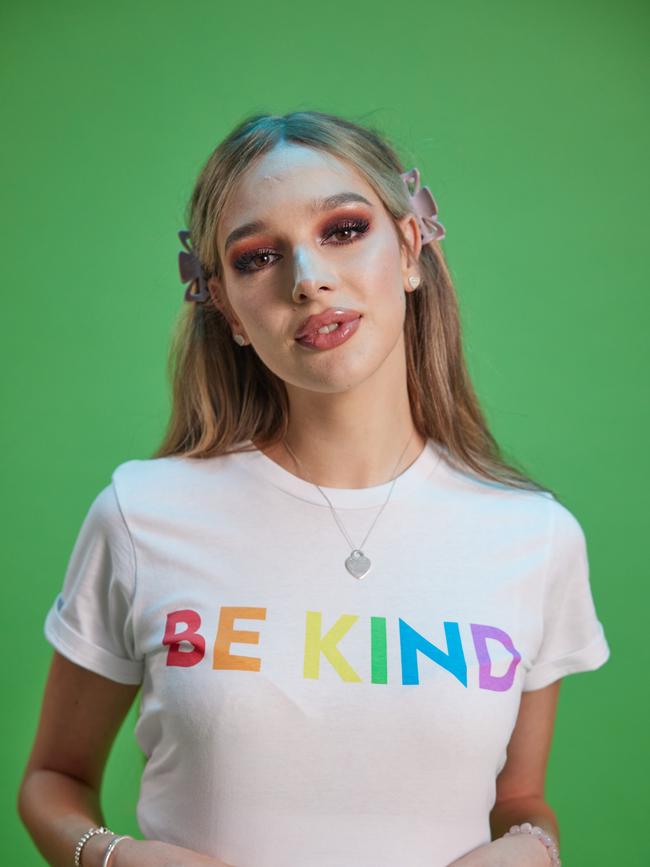
Hyland says while we still have a long way to go, the 78ers paved the way for future generations to speak up and feel heard.
“Yes, there’s always room for improvement, but it was them who moved us to get to this point where I can feel safe,” Hyland says.
“I feel very lucky because my experience and family support isn’t the same for (some) people my age, but I do think that there is an increase in acceptance. The difference in the wellbeing of trans people and LGBT adolescents who have been accepted by their families, and those who haven’t, is just astronomical.”
It was a documentary she found on YouTube that helped Hyland understand what it meant to be trans. To have grown up in the 1970s or 80s without that support or acknowledgment would have been near impossible to get through, she acknowledges.
“That was in 2012, before Caitlyn Jenner came out, and there wasn’t a lot of trans awareness,” she says.
“I only had the examples in front of me, and that was these really sad, abysmal lives of trans people who had been treated so poorly and that’s what I expected my life to be, if I’m honest.
“I wasn’t expecting to have a happy, fulfilled life being myself.
“I was toying with the idea of whether it would be better to keep it secret and just wait until I was 18, but then I would have had to watch my body go through male puberty, and I don’t think I could have lived through that.”
Despite having a happy childhood and home, Hyland was nervous to speak about the feelings that were taking over, but the benefits of having done so are in front of her in the mirror each day. And just like McEwan and Munro, she’s proud.
“I just want people to know that there are going to be rough times, but there are going to be beautiful times as well.
“You might lose people along the way, I did, but you get over that and where one door closes another opens and you just have to stop and think there is so much life to live.”





